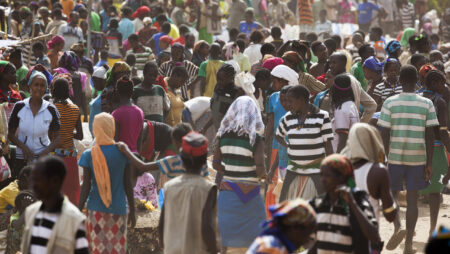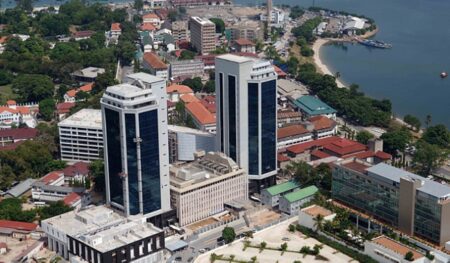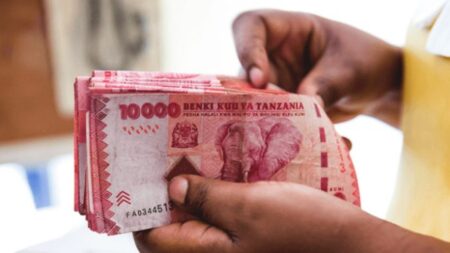- The recent dollar appreciation against most currencies globally has proven a challenge for most African economies.
- African governments have not done enough to build capital markets.
- Regional cooperation through the AfCFTA could help to distribute investment risk and future advantages throughout the continent.
The discussion on shifting currency markets has featured prominently in global financial and economic debates. Different stakeholders in Africa have expressed strong views on why domestic policy direction or the price of key tradable services or goods often leads local currencies to strengthen or weaken. However, The discussion on the significant impact of a strong US Dollar on African economies and how to reduce it over time has largely remained under the radar.
Trade and policy are the main drivers of major currencies. Currencies and their drivers are not absolute but relative. Thus, any deliberations on economic policy or an economy’s external reserves matters only become significant in relation to the major trading partners.
A substantial proportion of food and global fuel is priced in the most prominent global benchmark currency. Thus, when on the move, the impact of a strong US dollar on African economies becomes magnified.
A strong US dollar amid surging inflation
The recent dollar appreciation against most currencies globally has proven a challenge for most African economies. The US dollar’s appreciation followed the US Federal Reserve’s hike of interest rates to tackle the inflation spike from food and energy prices post-Russian invasion of Ukraine.
The runaway inflation and the higher interest rates have remained a major headache for African central banks. For the majority, the only choice has been to raise interest rates even faster than the Federal Reserve to prop up their currency. In some instances, this has resulted in currency depreciation rendering the already high energy and food prices even more costly to import.
Many African nations initially turned to food and fuel subsidies to ease the burden on their citizens. However, the subsidies have proven unsustainable over time as they increased budget deficits and pushed debt levels to unsustainable levels.
READ MORE: De-dollarise African trade to strengthen local currencies
Impact of a strong US dollar Africa’s external debt

Many African currencies have been significantly impacted by geopolitical and macroeconomic shocks, resulting in steep currency depreciation and high inflation levels, especially for countries that import fuel and food. This macroeconomic backdrop, coupled with governmental policy and missteps by central banks, has pushed some currencies to reach unprecedented lows.
Countries that have managed the impact of a strong US dollar on their economies typically share one of two common traits: net fuel exporters or have implemented actual or quasi-capital controls to curtail currency depreciation.
Blocking capital outflows
Although blocking capital outflows may provide a desperate Central Bank with the perception of control, it has detrimental consequences for the economy. Importers’ access to US dollars becomes increasingly problematic. As a result, either a parallel Forex exchange market develops, access to key imported commodities becomes difficult, or both. Nobody knew about Sri Lanka’s financial problems until they ran out of funds to purchase petrol.
Still, present investors seeking dividends and other benefits, as well as possible future investors, are discouraged from investing in a struggling economy for fear that it will be impossible to repatriate investment. With inadequate investment capital, a nation’s long-term economic growth potential suffers.
Some people could argue that a strong US dollar is an opportunity for Africa since it lowers the cost of inward investment into the region for US companies and makes dollar-based African exports more competitive. But, if foreign companies remain concerned about prolonged local currency devaluation and its effect on local currency earnings once exchanged back into dollars, the drive towards emerging markets would not materialize.
Fortunately for much of Africa, the US dollar peaked in October. It has subsequently plummeted by more than 10 per cent versus most major currencies. This occurred although the US Federal Reserve has continued to raise interest rates. This has provided much-needed relief to the hardest-hit nations. Still, it begs the question, is it feasible to limit the future impact of the US dollar on African economies?
Mitigating the effects a strong US dollar on African economies
Focusing on local financial solutions
One straightforward alternative is to fund a greater portion of their financial needs in Africa in local currencies. African governments have not done enough to build capital markets. Such markets would allow them to obtain additional funding in their local currencies. This necessitates investment in capital market infrastructure and establishing strong local financial institutions, allowing them to rely less on overseas investors.
Kenya setting the tone
For instance, Kenya’s economy has suffered from a sharp depreciation of the local currency and a shortage of dollars for importation. To counter this, the government recently struck an oil importation deal with Saudi Aramco, the biggest oil company globally, to import petroleum products for six months on credit.
With this move, the Kenyan government hopes to relieve the dollar pressure by delaying the payments for petroleum products under the deal that will also see Emirates National Oil Company Group (ENOC) supply three cargoes of petrol every month.
Moreover, Kenya has a bold plan to launch a repo market in 2023, supported by a local Central Securities Depository. This should increase the liquidity of the underlying bonds, lowering the amount at which it may issue local currency debt.
But, governments need strong domestic financial actors to help absorb the issued debt. Policymakers should look to upgrade (or develop) their country’s pension fund and insurance organizations. Notably, Africa has among the world’s lowest pension fund assets to GDP ratios, as do its insurance company assets.
Crucially, Kenya has also made a positive leap towards upgrading its pension scheme, the NSSF. The majority of Kenyans previously contributed Ksh. 200 per month, which added up to about Ksh. 72,000 over 30 years. However, the government raised this to an average of Ksh. 2,160 or about 5.6 per cent of an employee’s monthly salary. Notably, the employer should match the same.
Policies encouraging increased inflows into long-term investors provide ready purchasers of local government debt to offset long-term obligations. Yet, not every nation has the means or the capacity to do this independently. Thus, a regional or Pan-African strategy like the AfCFTA could prove more effective in reducing the impact of a strong US dollar on African economies.
READ MORE: Africa needs to grow its stake in global trade
Raising Local debt financing capabilities
Increasing local debt financing capabilities to lessen dependency on US dollar foreign loans would undoubtedly aid in managing future US Currency swings. Unfortunately, it doesn’t fix the difficulties presented by most key petroleum and food commodities priced internationally in US Dollars. Therefore, African nations must find ways better to defend themselves in the future against a raging dollar. It is quite improbable that commodities will be priced in dollars soon. This leaves some viable possibilities for African governments to choose from.
Raising local production
Increasing domestic oil and gas production is an obvious move for those gifted with oil and gas assets. But, improving the degree of refined goods is required to maximize the USD gained on sales.
Yet, the demand for additional onshore refinement in Africa goes beyond oil and gas. Selling unprocessed commodities, including tea, cocoa, palm oil, and so on, implies that the producer only receives a tiny fraction of the ultimate value of the commodity. The more Africa can advance the commodities and industry value chain, the better.
Yet, not every nation has oil or gas deposits or can afford to invest at this level. Regional cooperation through the AfCFTA could help to distribute investment risk and future advantages throughout the continent.
Agriculture and food security
Enhancing food security should also be a priority for nations that have traditionally depended significantly on imported grain, rice, etc. Egypt was especially vulnerable when Russia attacked Ukraine. The North African nation had to pay dramatically higher costs in US dollars as the Egyptian Pound weakened quickly.
Improving the productivity of African arable land, maybe done by generating fertilizer on the continent rather than importing it. Enhancing the distribution system so that perishable items can reach customers. Policymakers should also strive to change to crops for cultivation and consumption in Africa. All of these will assist in increasing food security and reduce the need for cash.
Currently, Africa is over-exposed to the impact of a strong US Dollar. Thus, African nations must either act individually or together to mitigate these effects. Dollar strength bursts are cyclical. Therefore, there should be enough time to implement efforts before the next one occurs. African governments have recognized the harm done in the previous year and should work round the clock to find a lasting solution.











